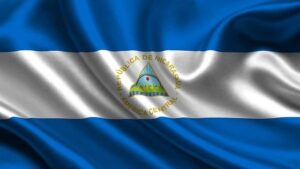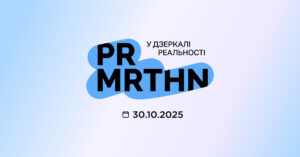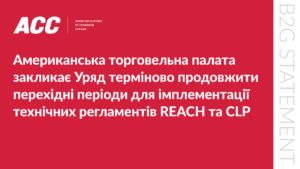
Silpo Food LLC, part of the Fozzy Group (Kyiv) trade and industrial group, which operates the Silpo grocery supermarket chain in Ukraine, earned UAH 612.7 million in profit in January-June 2025, while last year, during the same period, the company incurred a loss of UAH 863.5 million.
According to the company’s interim report, published in the information disclosure system of the National Securities and Stock Market Commission (NSSMC), Silpo Food’s revenue from sales in the first half of 2025 increased by 15.5% compared to the first half of 2024 and reached UAH 50.3 billion.
It is noted that the company’s gross profit in January-June 2025 increased by 27.3% compared to the same period a year ago, to UAH 15.8 billion, and operating profit increased 2.1 times, to UAH 1.4 billion.
Silpo Food’s current liabilities since the beginning of the year as of June decreased by 6% to UAH 27.8 billion, while long-term liabilities increased by 4% to UAH 13.5 billion.
The company’s uncovered loss at the end of June 2025 decreased by 2.2% since the beginning of the year and amounted to UAH 24.9 billion, while assets increased by 1.3% to UAH 34.5 billion.
As reported, Silpo Food’s revenue for 2024 increased by 9.8% compared to the previous year, to UAH 93 billion.
Silpo Food LLC was established in early August 2016. According to Opendatabot, the founder of the LLC is PJSC Closed Undiversified Venture Corporate Investment Fund Retail Capital (100%, Kyiv), and the ultimate beneficiary is Volodymyr Kostelman.
As of September 2025, the chain has 310 supermarkets in 62 cities of Ukraine and four Le Silpo delicatessen markets: in Kyiv, Dnipro, Kharkiv, and Odesa.
It is part of the Fozzy Group, a trade and industrial group with more than 826 retail outlets throughout the country. The company develops retail chains of various formats: Silpo supermarkets, Fozzy wholesale hypermarkets, Fora neighborhood stores, Thrash! discount stores, Bila Romashka pharmaceutical supermarkets, and E-ZOO pet stores.

Ukraine has announced the severance of diplomatic relations with the Republic of Nicaragua in response to Managua’s decision to recognize Crimea, which is temporarily occupied by Russia, as well as parts of the Donetsk, Luhansk, Zaporizhzhia, and Kherson regions as part of the territory of the Russian Federation, the Ministry of Foreign Affairs reported.
“This decision is a gross violation of the UN Charter and international law. Support for Russia’s armed aggression and recognition of the so-called ”DPR“ and ‘LPR’ indicates the political identification of the Managua regime with the aggressor state,” the Ukrainian Foreign Ministry said.
Foreign Minister Andriy Sibiga stressed that Kyiv will continue to respond harshly to any attempts to undermine Ukraine’s sovereignty and territorial integrity.
Diplomatic relations between Ukraine and Nicaragua were established on September 6, 1992. Ukraine’s interests in Nicaragua were represented by the embassy in Mexico, and consular functions were performed by the Consulate General of Ukraine in Havana (Cuba).

Sales of new passenger cars in Ukraine in January-September 2025 amounted to 54,300 units, which is almost equal to last year’s figures for this period, according to AUTO-Consulting.
“Throughout the year, the car market lagged significantly behind last year’s volumes. It all started with the cancellation of numerous USAID assistance programs, which immediately began to affect car deliveries. Other factors were added later. And only in the summer did the car market begin to return to last year’s track. And in September, it practically managed to catch up with the figure for the first nine months,” according to a statement on the information and analytical group’s website.
At the same time, according to analysts, passenger car sales in September fell by 3% compared to August 2025, to 6,737 units.
AUTO-Consulting notes that in terms of quality and structure, there were “dramatic changes” in this market in September, in particular, BYD is now the market leader, having managed to capture 14% of the market and overtake Toyota.
“Just a month ago, Toyota finished with these figures, and as soon as dealers slowed down a little, BYD surged ahead,” the group states.
There were no other changes in the top five compared to August – Volkswagen, Renault, and Skoda remained in the same positions as a month earlier, while BMW was one step ahead of Hyundai, taking sixth place without even increasing sales.
“There have also been changes among the popular models. The current bestseller is the VW ID. Unix, which has pushed even the “favorite” of all corporations, the Renault Duster, into second place. But it seems that these are not the final figures, as the BYD Seal and BYD Leopard 3 are already hot on their heels,” the report says.
AUTO-Consulting notes that in September, nine of the twenty most popular car models on the market were electric vehicles from the Chinese market.
As reported, according to the Ukravtoprom association, in September 2025, initial registrations of new passenger cars increased by 20% compared to September 2024 and by 1% compared to August 2025 – to more than 6,800 units, while in January-September they decreased by 0.3% to 52,900 units.

On October 30, 2025, the PR marathon “In the Mirror of Reality,” dedicated to honesty, trust, and effective communication strategies, will take place in Kyiv at UNIT.City (3 Dorogozhytska St., Campus B12).
The event will bring together over 300 participants and more than 30 speakers. The program includes four panel discussions dedicated to building trust and brand authority, combining PR strategies with business management, the ethical use of artificial intelligence, and modern anti-crisis practices.
The marathon will also feature an awards ceremony for the winners of the PR Case Competition.
The organizers note that the event will be a key one for communications and marketing professionals in Ukraine in the fall of 2025.
Registration is open on the website prmrfn.mmr.ua
Interfax-Ukraine is an information partner

The international business community, united by the American Chamber of Commerce in Ukraine, calls on the Government to urgently extend the transition period for the implementation of the Technical Regulation on the Safety of Chemical Products, approved by Resolution of the Cabinet of Ministers of Ukraine No. 847 of July 23, 2024, and the Technical Regulation on the Classification, Labelling and Packaging of Chemical Products, approved by Resolution of the Cabinet of Ministers of Ukraine No. 539 of May 10, 2024 (hereinafter referred to as the REACH and CLP technical regulations), which establish European standards for the safe handling of chemicals.
Business supports the harmonization of European Union (EU) and Ukrainian legislation. However, the deadlines set (1.5 years for CLP and 5 years for REACH) are unrealistic without a clear roadmap and the necessary infrastructure. In the EU, such adaptation took 7–10 years.
This regulation extends to and affects the functioning of a number of industries that use chemical products, namely: household chemicals, pharmaceuticals, cosmetics, agrochemicals, textiles, electronics, and others. Therefore, if the implementation deadlines are not extended, there is a threat of restrictions on imports and production from November 15, 2025, which will lead to product shortages, price increases, growth in “gray” imports and counterfeits, as well as risks to consumer and environmental safety.
Therefore, the business community calls on the Government to:

According to The Guardian, Taiwan ranks first among global importers of Russian oil, a light petroleum product that is particularly in demand in the semiconductor and chemical industries, The Guardian reports, citing a study by the Centre for Research on Energy and Clean Air.
In the first half of 2025, Taiwan imported Russian oil worth about $1.3 billion, which is 44% more than in the same period in 2024. Average monthly imports were almost six times higher than in 2022.
The increase in imports has been observed since the start of the war in Ukraine: from February 2022 to June 2025, Taiwan imported 6.8 million tons of Russian oil worth a total of $4.9 billion, which is approximately 20% of all Russian exports of this product.
Although Taipei has formally joined the sanctions against Russia and supports Ukraine, no restrictions on imports of fossil fuels from Russia have been imposed. Experts note that the increase in purchases by Taiwan could undermine the trust of its democratic allies and intensify criticism from the international community.
Naphtha is a light liquid fraction of petroleum or a petroleum product obtained from the refining of crude oil.
It is used as a feedstock in petrochemicals, especially in the production of olefins and polymers. It can be mixed with gasoline or used in reforming processes to improve the octane rating of fuel. It is also used as a solvent in the chemical industry, for diluting heavy oils, and in the production of paints and varnishes.
Oil is particularly important for Taiwan, as the island’s economy depends on the semiconductor industry, which requires high-purity chemical components. Stable access to petroleum products ensures supply chains in electronics and microelectronics.